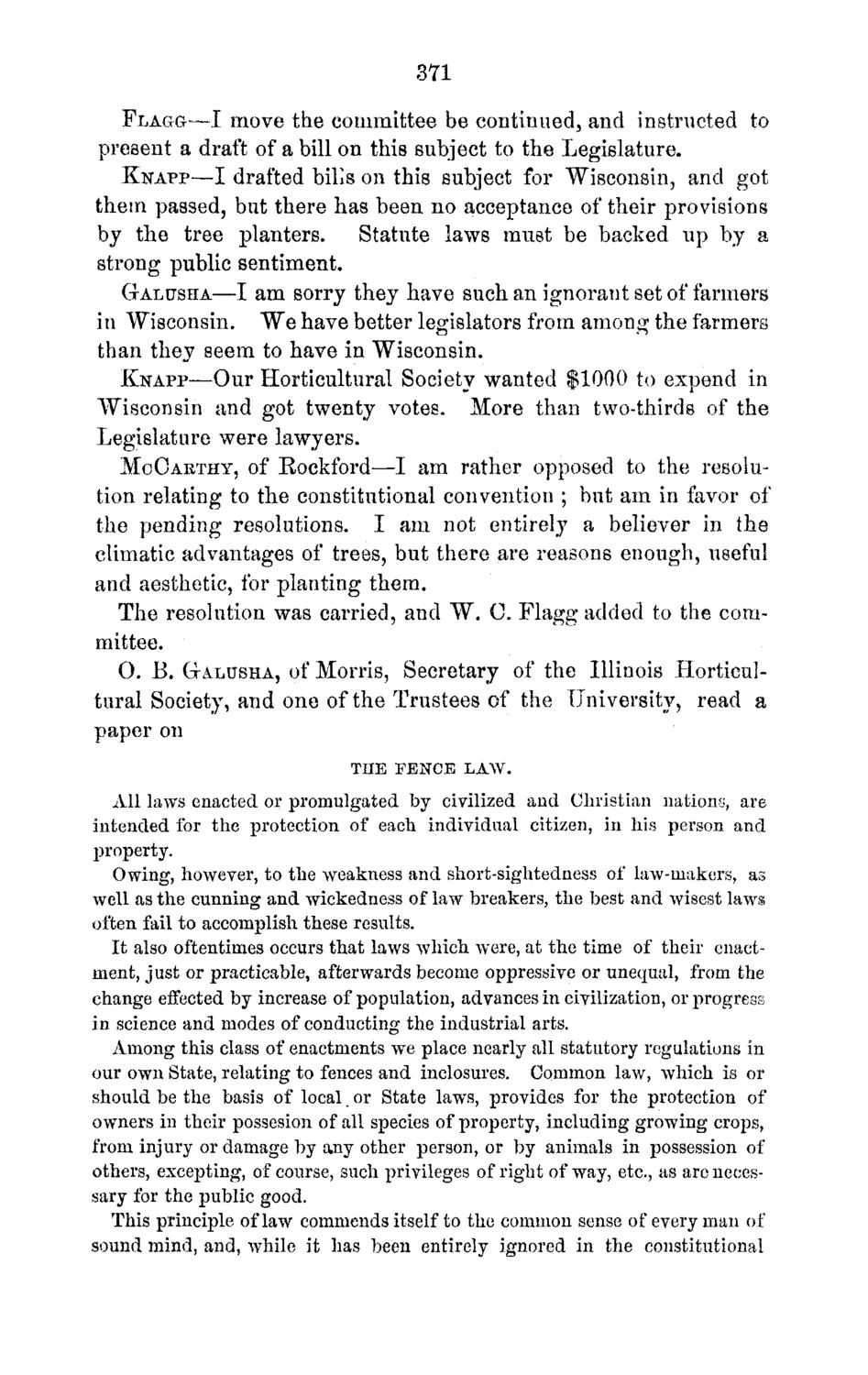| |
| |
Caption: Board of Trustees Minutes - 1870
This is a reduced-resolution page image for fast online browsing.

EXTRACTED TEXT FROM PAGE:
371 FLAGG—I move the committee be continued, and instructed to present a draft of a bill on this subject to the Legislature. KNAPP—I drafted bills on this subject for Wisconsin, and got them passed, but there has been no acceptance of their provisions by the tree planters. Statute laws must be backed up by a strong public sentiment. GALUSHA—I am sorry they have such an ignorant set of farmers in Wisconsin. We have better legislators from among the farmers than they seem to have in Wisconsin. KNAPP—Our Horticultural Society wanted $1000 to expend in Wisconsin and got twenty votes. More than two-thirds of the Legislature were lawyers. MCCARTHY, of Rockford—I am rather opposed to the resolution relating to the constitutional convention ; but am in favor of the pending resolutions. I am not entirely a believer in the climatic advantages of trees, but there are reasons enough, useful and aesthetic, for planting them. The resolution was carried, and W. C. Flagg added to the committee. O. 13. GALUSHA, of Morris, Secretary of the Illinois Horticultural Society, and one of the Trustees of the University, read a paper on THE FENCE LAW. All laws enacted or promulgated by civilized and Christian nations, are intended for the protection of each individual citizen, in his person and property. Owing, however, to the weakness and short-sightedness of law-makers, as well as the cunning and wickedness of law breakers, the best and wisest laws often fail to accomplish these results. It also oftentimes occurs that laws which were, at the time of their enactment, just or practicable, afterwards become oppressive or unequal, from the change effected by increase of population, advances in civilization, or progress in science and modes of conducting the industrial arts. Among this class of enactments wTe place nearly all statutory regulations in our own State, relating to fences and inclosures. Common law, which is or should be the basis of local. or State lawTs, provides for the protection of owners in their possesion of all species of property, including growing crops, from injury or damage by any other person, or by animals in possession of others, excepting, of course, such privileges of right of way, etc., as are necessary for the public good. This principle of law commends itself to the common sense of every man of sound mind, and, while it has been entirely ignored in the constitutional
| |